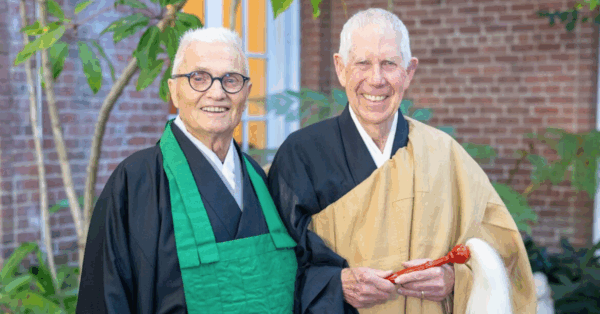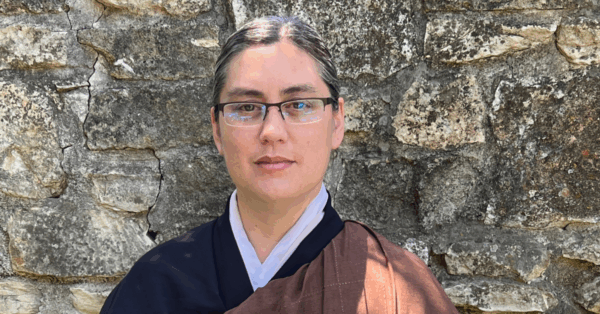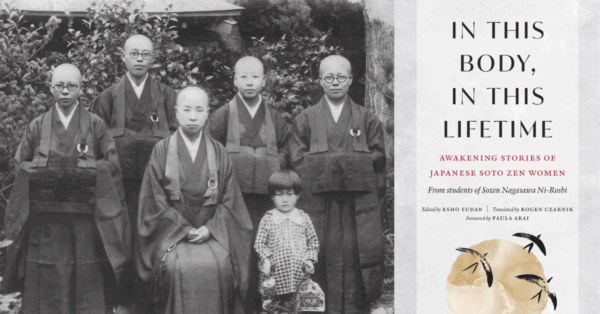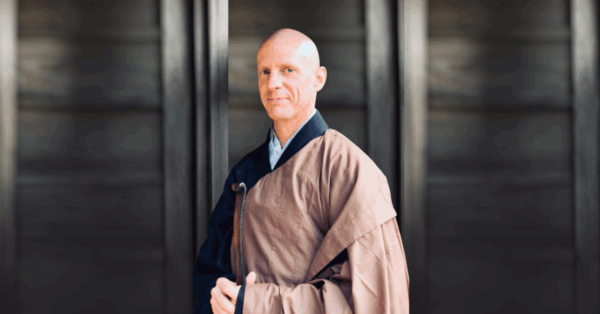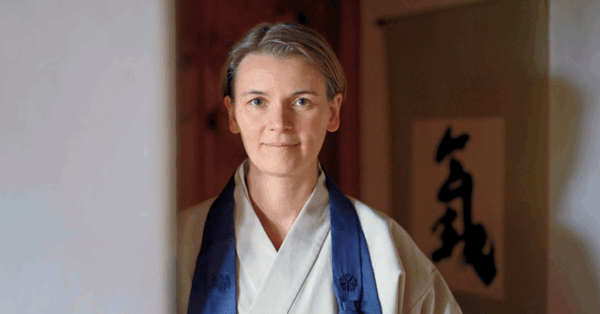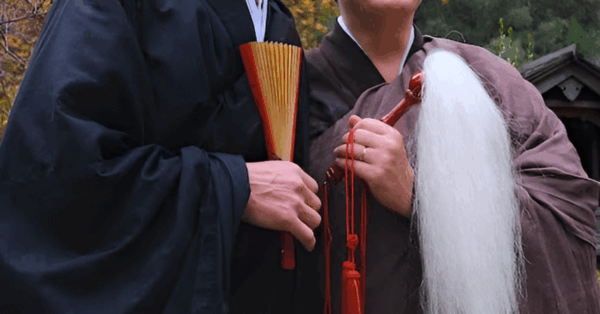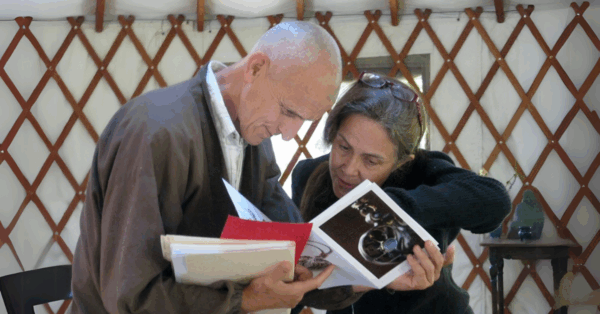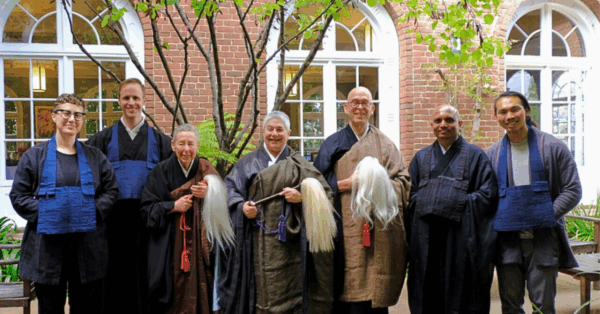Current SFZC members are invited to participate in two very important decisions for the future of our sangha. First, the approval of the slate of candidates nominated by the Board to fill vacancies on the Board of Directors. Second, the approval of amendments to SFZC bylaws in order to provide for the three-abbess/abbot leadership structure with which we have been experimenting since 2010. To this end, members will soon be receiving a ballot on both of these issues in the mail.
Letter addressed to current SFZC Members from Mary Morgan, Chair of the SFZC Board of Directors:
APPROVAL OF SLATE OF CANDIDATES FOR THE BOARD
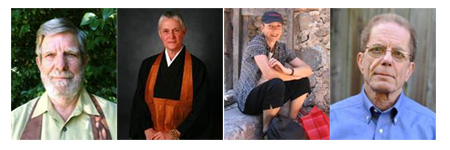 The Board has nominated and respectfully submits for your approval the following slate of candidates to serve three-year terms on the Board commencing January 1, 2013:
The Board has nominated and respectfully submits for your approval the following slate of candidates to serve three-year terms on the Board commencing January 1, 2013:
- Bruce Fortin
- Fu Schroeder
- Helen Degenhardt
- Dennis McNally
The candidates’ photographs and biographies can be viewed on our website.
The Board Governance Committee spent over six months meeting with and interviewing potential candidates prior to presenting this slate of candidates to the Board for approval. Each candidate has a deep commitment to his or her practice and to San Francisco Zen Center. Their areas of expertise are needed on the Board, and they have clearly demonstrated their qualifications and capacity to lead Zen Center through the next few years. It is now your turn to place these highly qualified individuals on our Board.
Your vote is important for several reasons. First, and most importantly, I hope you will demonstrate your support for these individuals who have agreed to volunteer substantial amounts of their time to keeping SFZC on track with its mission and in good financial health.
Second, our bylaws require that the Board members be elected by the membership, and it is important that we comply with that legal requirement.
Third, I hope you will reacquaint yourself with the option of a write-in candidate. This is an important option in Zen Center’s electoral process.
As to the broader question of why we use a nominated slate in the first place, there are several reasons. Every year a number of complex questions confront the Board. Some of the issues that are currently before the board are such matters as: accommodating the planned renovation of Cloud Hall with as little disruption as possible to residents, programs, and income; providing living arrangements for our Elder Monks; completing the Capital Campaign; and evaluating and improving our program offerings. Frequently, experience and expertise gained through long years of working in the world outside of Zen Center are invaluable in weighing the options and making the sometimes hard choices that these issues present.
Because of the complexity of these challenges, it is important that the composition of the Board be intentionally shaped, that we ensure that we have people with the skills and experience that we need. This can only be accomplished by using a slate. An open election will provide only a random result. And there are a number of highly qualified people who would never be chosen by an open election, either because they are not sufficiently well known to the membership, or because, quite understandably, they are not willing to subject themselves to the possibility of rejection by their own sangha. (In an open election, someone always loses.)
So, I am asking you to cast your vote, and give your support to these individuals who have volunteered to put their shoulders to the wheel of dharma. And if there is someone in our community who you think would make a great Board candidate, you are free to write her or his name in on the ballot. Even better, please put her or his name forward to anyone currently serving on the Board, to any of the officers of Zen Center, or to an Abbess or Abbot for inclusion in the Leadership Program and/or consideration for next year’s slate of candidates. We are always looking for a few good bodhisattvas.
APPROVAL OF BYLAW AMENDMENTS
The Board unanimously adopted a resolution on October 14, 2012, amending Articles IV and VI of the bylaws to provide for the three-abbess/abbot structure with which we have been experimenting since April 2010. Please go to Amended Bylaw to see a copy of the adopted bylaw amendments showing the changes in wording from the previous bylaws. This decision represents the culmination of several years of work to craft a new structure for our religious leadership that will be sustainable for the individuals filling those positions and will facilitate attention to students and timely and efficient decision-making with the rest of Zen Center leadership.
The amendments to the bylaws were discussed, reviewed and modified by a Joint Committee of the Board and the Elders Council, the Governance Committee of the Board, the Board and the Elders Council. The Joint Committee issued a report to the Board in September 2012 which you can find in the Governance section of our website. Comments and feedback from the Sangha were invited. All the thoughtful questions, concerns and suggestions, especially about the term of the abbess/abbot were carefully considered by the Joint Committee. It was decided not to make any changes in the possible length of the term. The Elders Council, in proposing an abbatial candidate, will consider all appropriate concerns including, but not limited to, the well-being of the community, the need for stability, the need for change, the health and well-being of the candidate, the previous abbatial service of the candidate, the co-equal relationship of the abbesses/abbots, etc.
The Joint Committee did wish to clarify that the Board acts in appointing and reappointing an abbess/abbot only upon the recommendation of the Elders Council. The Committee also wished to amend Article IV to reflect the correct number of members of the Board including normally three abbesses/abbots. Finally, the Committee decided to delete “by unity” as the method of Board approval. This is a technical term used in a Quaker decision-making practice which is neither voting nor consensus. The Board has not used this process for many years, and it was deleted so that the bylaws reflect the current practice of the Board.
The bylaws provide that the changes adopted by the Board shall remain in effect unless they are disapproved by a vote of two-thirds (2⁄3) of the members who cast votes by written ballots, provided that written ballots are cast by a majority of the members.
Thank you very much for your careful attention to these matters and for supporting San Francisco Zen Center,
Mary Morgan
SFZC Board Chair
AMENDED BYLAW – Showing changes in the text


